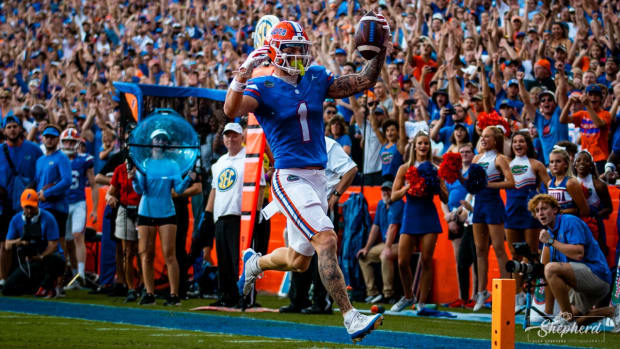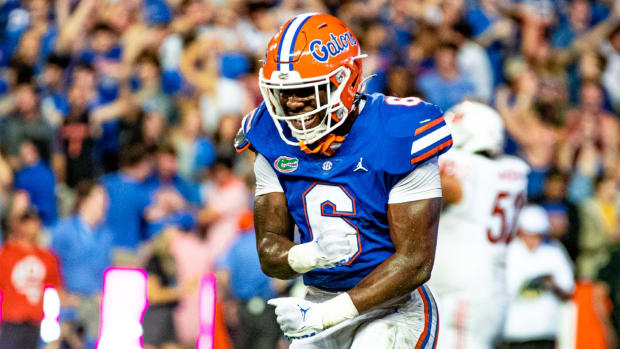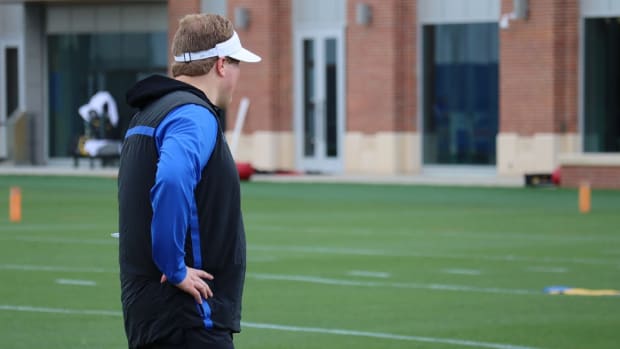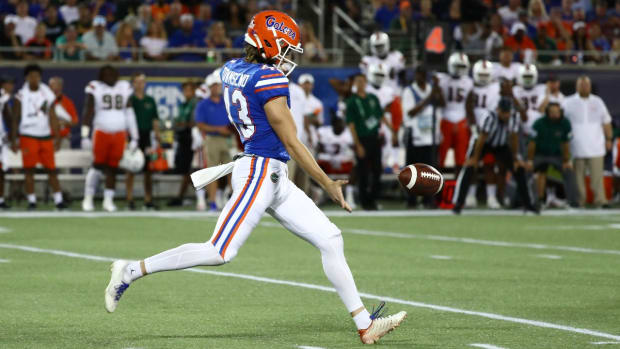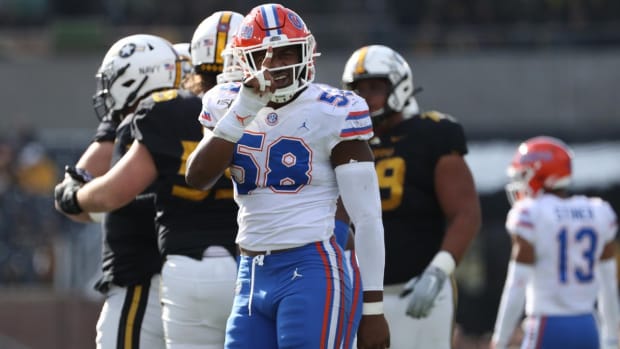How Sustainable is the Florida Gators' Offensive Explosion?
For the Florida Gators, the offense has typically been driven by the defensive side of the football, historically. While the team has had success offensively in the past (Tim Tebow era, etc.), Florida as of late has relied on the run game, and much of the defensive efforts to carry the team to victory, until recently.
This year, the Gators have been one of the most impressive offenses in the SEC. While the team has only played through two games (Ole Miss, South Carolina), part of the optimism can be drawn from the team's success from just the previous season, particularly the passing game.
Last season, the Gators ranked 16th in passing yards per game in all of college football with 300.8 yards-per-game, while they ranked 45th in total offense with just 430.8 yards per game. Much of the regression from passing offense to total offense came due to the team's inability to run the football.
This season, Florida has already seen their offensive success blossom. Through just two games, Florida ranks 7th overall and 4th in the SEC in passing yards per game with 357 yards-per-game and ranks 14th overall in total offense with 495 yards-per-game. While the run game hasn't quite caught up, Gators head coach Dan Mullen feels it's doing just fine.
"You always play to the strength of your guys, so you go with what's working. Our goal, coming in this week is to be 50-50, right? I mean, if we can knock them off the ball, run the ball, we'll do that. If they're struggling covering us we're gonna keep throwing. I don't know, that's my best answer for you," Mullen said on Monday when asked about the balance of the offense.
On Saturday against the Gamecocks, Florida threw the football 29 times, while running the football 22 times. The balance was there, for the most part, however, the overall impact of each area can't be determined simply based on the number of plays called. Florida had 53 plays compared to the Gamecocks' 83 plays, for example.
Oftentimes, an offense is predicated on how the opposing defense is playing a given team. Against the Gamecocks, Florida was able to pass the ball at will at times, and so they did. Gators quarterback Kyle Trask completed 22 out of 29 of his passes for 268 yards and four touchdowns - an efficient day from the team's signal-caller.
"When we write up the gameplan, our goal going into every game is to be 50-50. You know, the first two games, we go and do our evaluations we're run-efficient," said Mullen. "So, our run game's been very efficient, [it has] been a positive for us this year as we evaluate from play-to-play, the run efficiency."
On the ground, Florida didn't run the ball much against South Carolina. Dameon Peirce, the team's bell-cow running back, rushed just nine times for 51 yards and a touchdown. While efficient enough, the team didn't need to run as often as they'd necessarily like to. However, against Ole Miss in Week 1, the team was able to get off to a much better start on the ground, rushing 29 times for 196 yards.
"So, our run game's been actually really good this year, we've had a lot of success throwing it so we probably called more pass plays. But, our goal is to be 50-50."
Sustainability in an already high-variance SEC will be tough, however, the Gators have shown over the past two weeks - and last season -, that there is reason to believe the offensive explosion isn't simply a fluke, and potentially could be better than their given average on a week-to-week basis.
The playmakers on offense, tight end Kyle Pitts, wide receivers Kadarius Toney, Trevon Grimes, Trent Whittemore, Justin Shorter and Jacob Copeland, along with the ground game, have already showcased the talent to keep the offense afloat. While it could be better, it is clear the potential for sustained production is there, absolutely, especially if they get a cut-throat mentality in never letting their foot off the gas.
“I think it’s growing, and I don’t want to downplay that we don’t have it," Mullen said of the team's killer-instinct. "I think the uniqueness of the season has led to that. If you would’ve asked me in March, ‘Do you think you are going to have that?’ I would’ve said yes. But with everything that’s gone on I think we’re still developing and figuring a lot of things out.”
